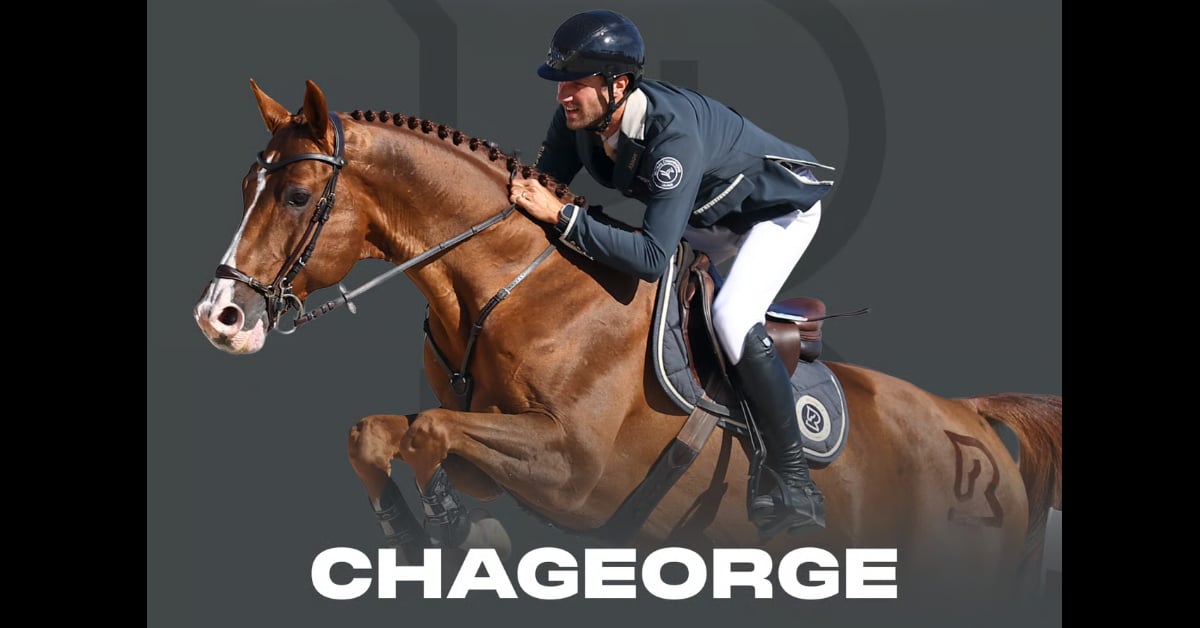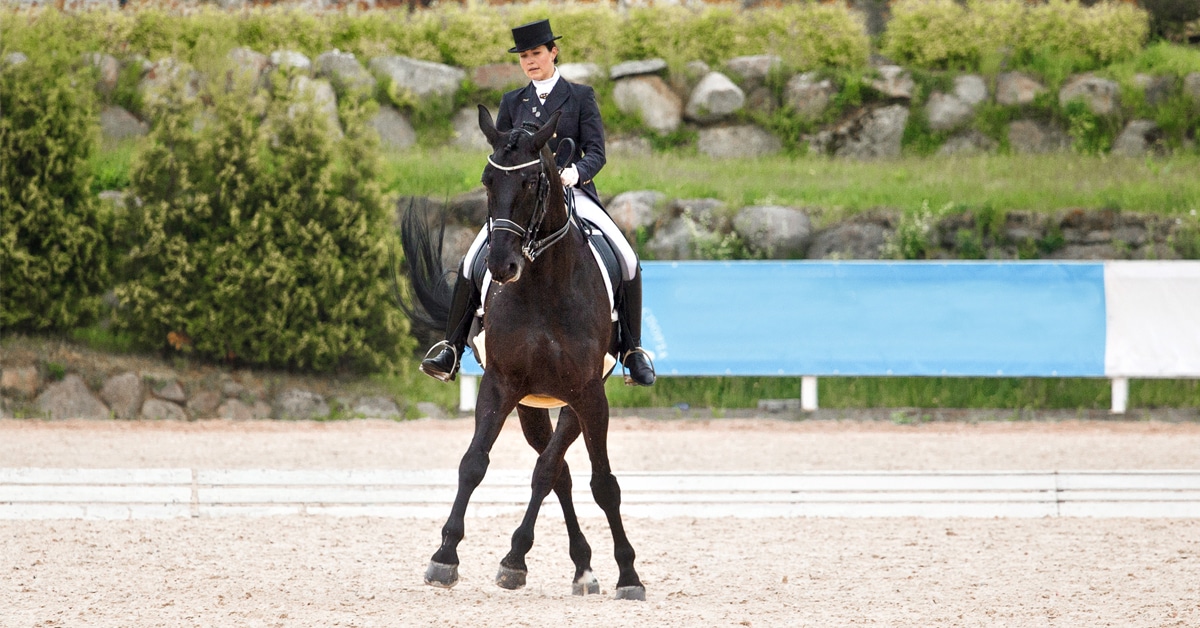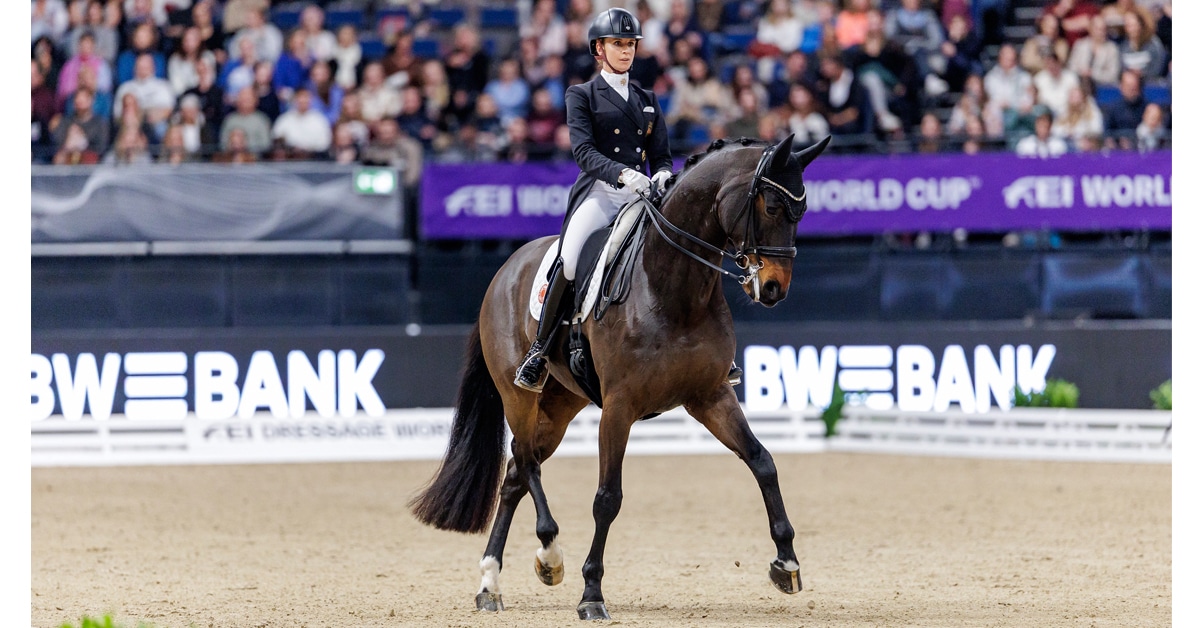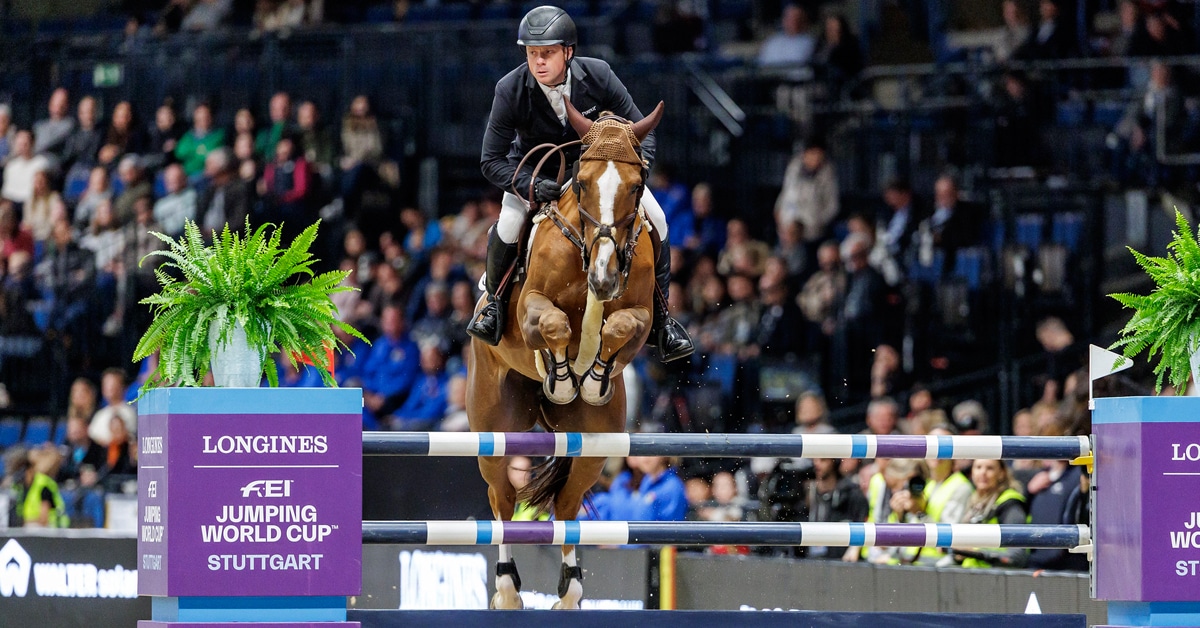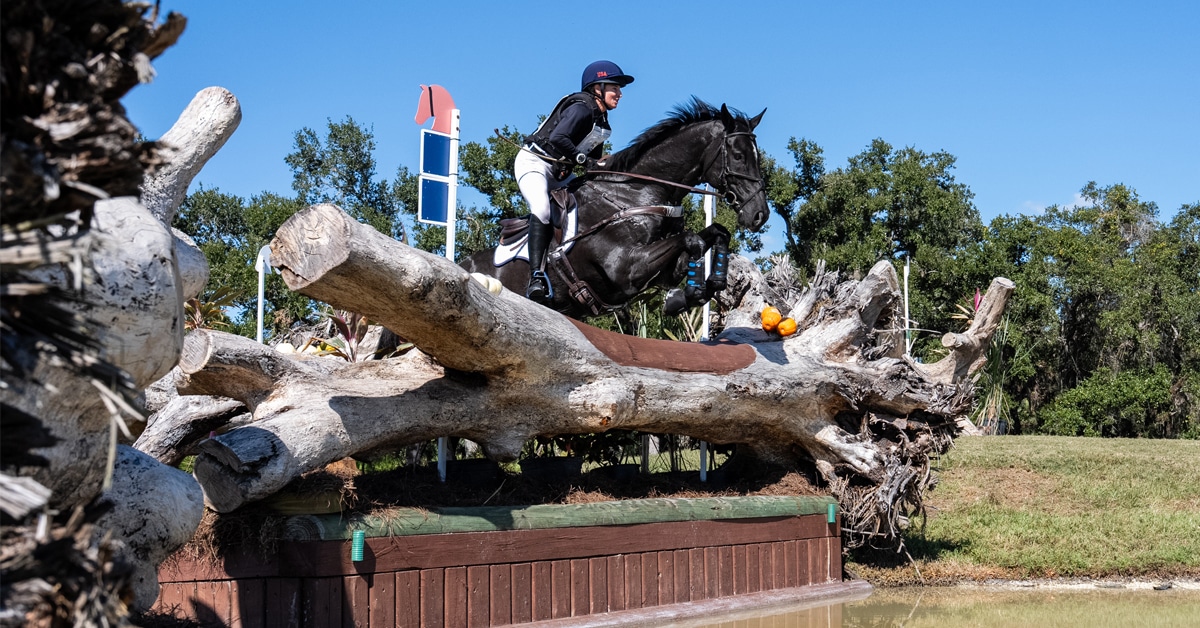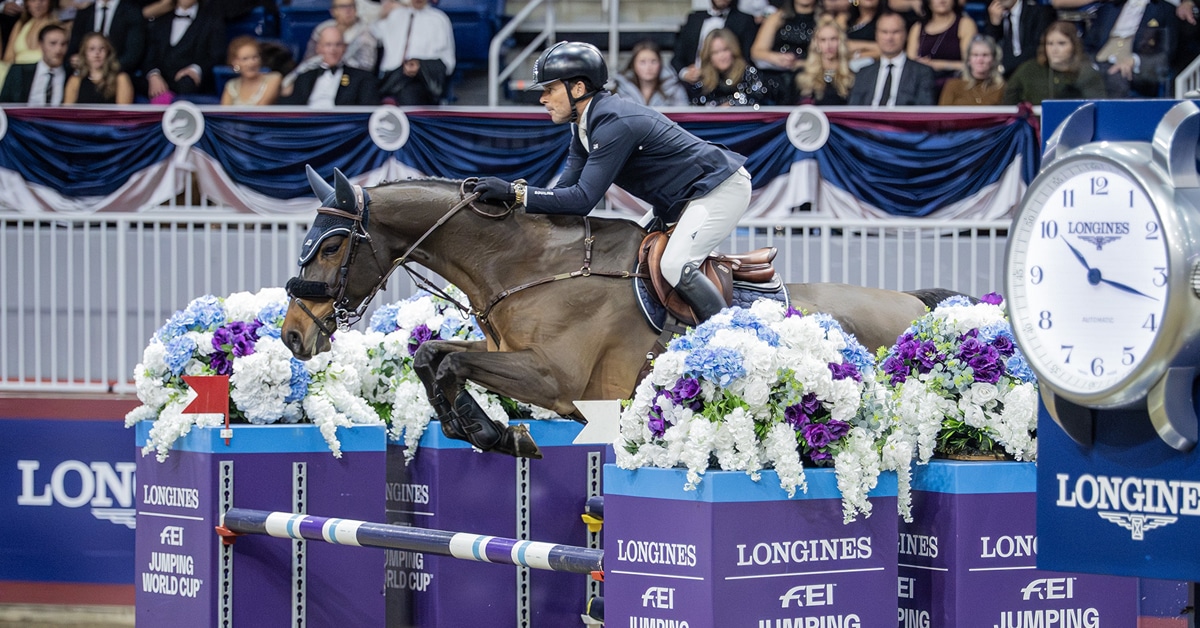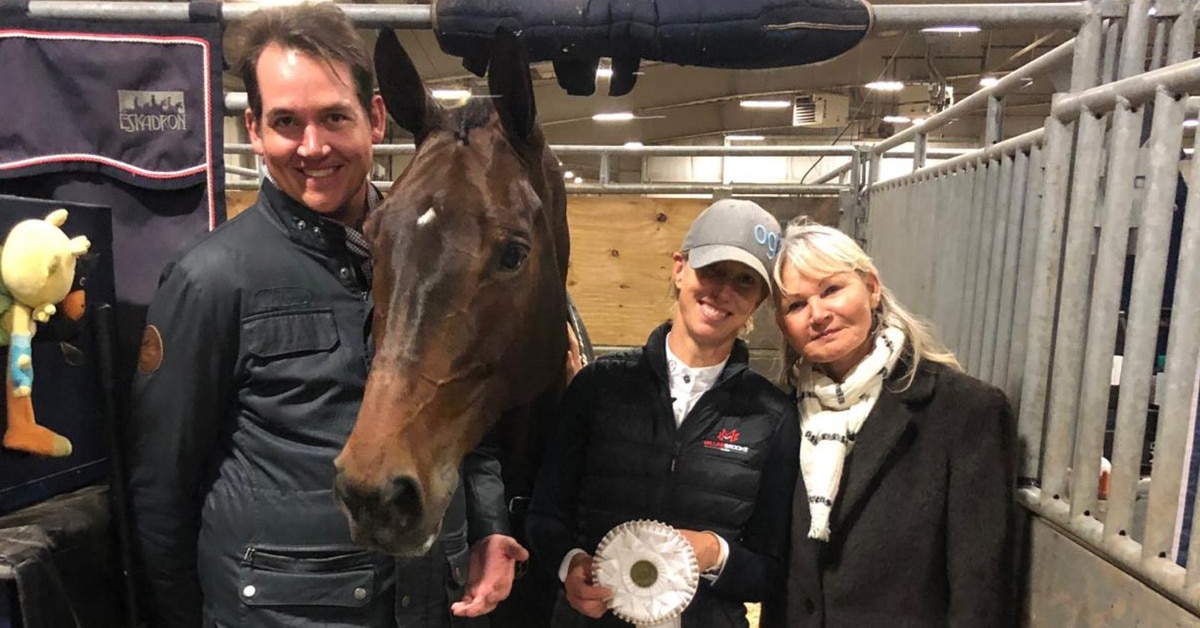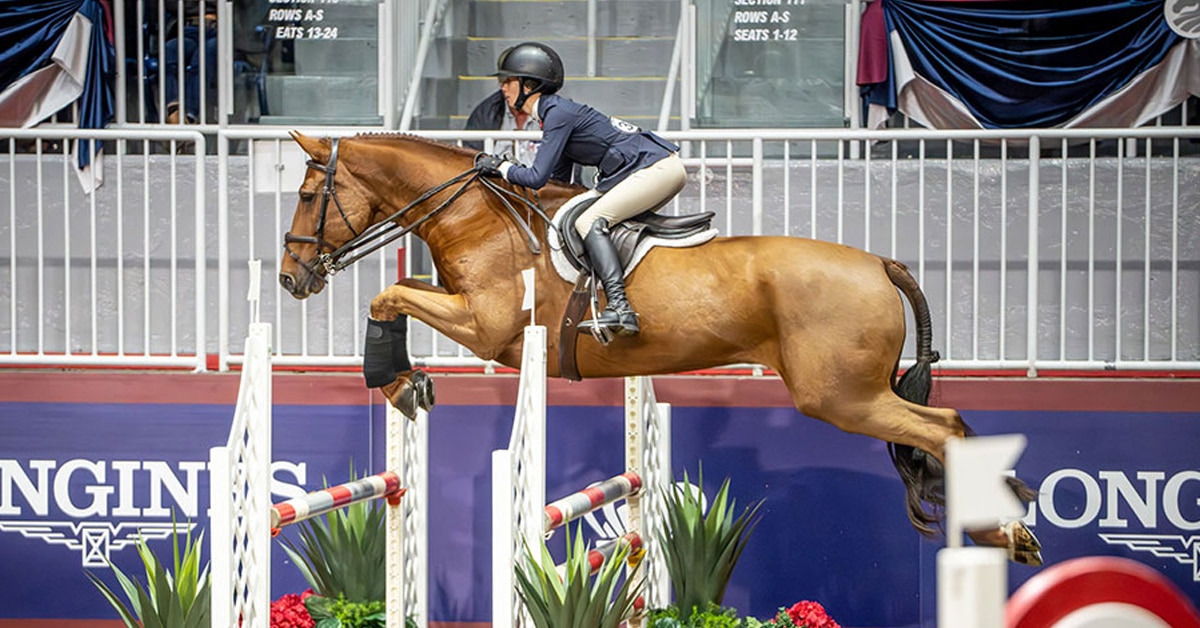Scoring for the new Olympic jumping format in Tokyo is to change after the three-rider/no drop-score team test confused spectators and suggested it was even vulnerable to “manipulation.”
But the proposed amendments have not placated top riders. London 2012 champion Steve Guerdat said the inevitable “mess” at next year’s Games would be squarely down to the FEI, during tense exchanges with senior FEI personnel in Rotterdam during the European Championships.
Cian O’Connor, who was particularly critical of the FEI, has since resigned from the FEI jumping committee, less than a year after he was elected athlete representative.
Feedback from Hagen was presented to the International Jumping Riders Club (IJRC) general assembly by FEI jumping committee chair Stephan Ellenbruch. Canada’s Tiffany Foster was present on behalf of the North American Riders Group (NARG.) A video of the session can be viewed here.
Like eventing, which staged complicated live tests for three-rider/no drop-score teams last season, jumping has struggled with calculating a ranking score where a team rider is eliminated. Jumping’s original solution was to award the worst result in the class plus four faults. However, at Hagen this made for a confusing public leaderboard each time there was a new “worst score.”
More alarmingly, Ellenbruch said the system could be “manipulated”; for some teams it could be advantageous to accept the worst score plus four, rather than jump their third horse. He elaborated: “With this you could win a medal or qualify for the second round – not by competing but just by strategy and not performing.”
The FEI jumping committee has now concluded that a team with three actual results will always be ranked above a team with two results. “That is very easy to display on scoreboards, very easy to sell.” For any jump-off, all three riders will jump and all count.
The IJRC has robustly campaigned for retention of four-horse teams with a drop score, before and since the Olympic format changes were approved by the national federations in 2016. Both FEI president Ingmar de Vos and Ellenbruch stressed it said was too late to request major changes. Suggestions to simplify the scoring would shortly be presented as “minor modifications” to the IOC.
After Ellenbruch’s presentation, the Swiss champion was the first to respond. “If we have journalists here today, I want them to know that the FEI is going to be the only one responsible for the mess we are going to see in Tokyo. Because you [the FEI] did not listen to what we were saying,” said Guerdat. “Nowhere do I want to read that this was a compromise between the FEI and us riders.”
IJRC president Kevin Staut (France) stressed that riders were upset rather than intentionally aggressive towards the FEI: “When Steve and Cian speak, it really shows how the riders are affected.
“The drop score is really important. We know the IOC asked for change, but they did not ask for the drop score to be gone. You [the FEI] decided, and it is really hard to accept…most of us think it will be a disaster. You have the proof from the test event.”
Staut was not the only person querying whether the IOC had specifically demanded such radical changes. Max Kuhner (Austria) said riders only knew what they were told by the FEI – if the IOC had sent the riders an explanatory letter, it might have been easier to accept.
Ludger Beerbaum (Germany) – whose remarks drew applause – feared that the horse welfare impacts had not been appreciated by the IOC: no other Olympic sport involves animals.
“We really do worry. It’s just not being against [the FEI], and saying you do everything wrong – I’m sure you don’t,” said Beerbaum. “Maybe at one point you [the FEI] were confronted [by the IOC,] and it was tough. At that point there should maybe have been more work done to explain to the technical bodies within the IOC that we have a problem and to be open to more flexibility.
“Did the IOC ever tell us we have to do the individual final before the team final? I don’t think they go into these technical matters. The course-builder is going to have a hell of a job with all these weak ones. Either the course will be too easy or far too heavy, and we will not really see the welfare of the horse.”
De Vos responded that he stood before the riders “humbly,” beseeching them to “agree to disagree” while cautioning that they did not know all the parameters within which the FEI had to works. He urged them to make the new concept work in Tokyo, after which the rules could be reviewed again. “We need to make this a success. We need to move on with our sport and make the best Olympic Games ever.”
As a former Belgian team chief d’equipe, De Vos appreciated the four rider/drop-score format and that managers would have to adjust team strategies.
“We had a very clear message from the IOC: change or be changed,” said De Vos. “We took our responsibility together with our national federations to do the necessary change in order to allow a more transparent competition system, but moreover a universal system.”
Especially terse exchanges occurred between O’Connor and De Vos. The Irish rider accused the FEI of speaking “untruths” about IOC requirements, and of general “disarray.”
“You think it is going to bring the level up with more flags. It is going to dumb the level down … the modernisation needs to take place with the [new] countries being up to the level. Some of the qualifications are a joke,” said O’Connor. “China was so ‘good’ [at the Far East’s Olympic qualifier] in Valkenswaard that on 40-something faults they did not need to send in their last man.”
Breido Graf zu Rantzau, president of the German federation, raised the thorny topic of nations who “know nothing” having voting power in serious decisions like the Olympic Games; this cannot continue.
O’Connor said he had not stood for election to the FEI committee just to pay “lip service.” He expected a “rap on the knuckles” for speaking out.
O’Connor has since formally tendered his resignation, stating that he was probably temperamentally unsuited for committee environments and could be more effective in promoting change from the outside.
Another bone of contention the upcoming Nations Cup final in Barcelona, which for the first time offers an Olympic slot to the best nation not already qualified for Tokyo. As the annual host, Spain is allowed to compete in the final without having qualified on merit. Riders wanted to know how the FEI would react if Spain won the Tokyo spot.
After it was suggested this was not IJRC business, Beerbaum expressed his frustration that the FEI often tried to dodge this sort of “delicate” question: it was common-sense to review rules with unintended consequences.
De Vos said the FEI did not have a “crystal ball” when this Olympic qualifying opportunity was added for 2020. “We refuse to be a stupid organisation that does not learn from its mistakes.”
More News
